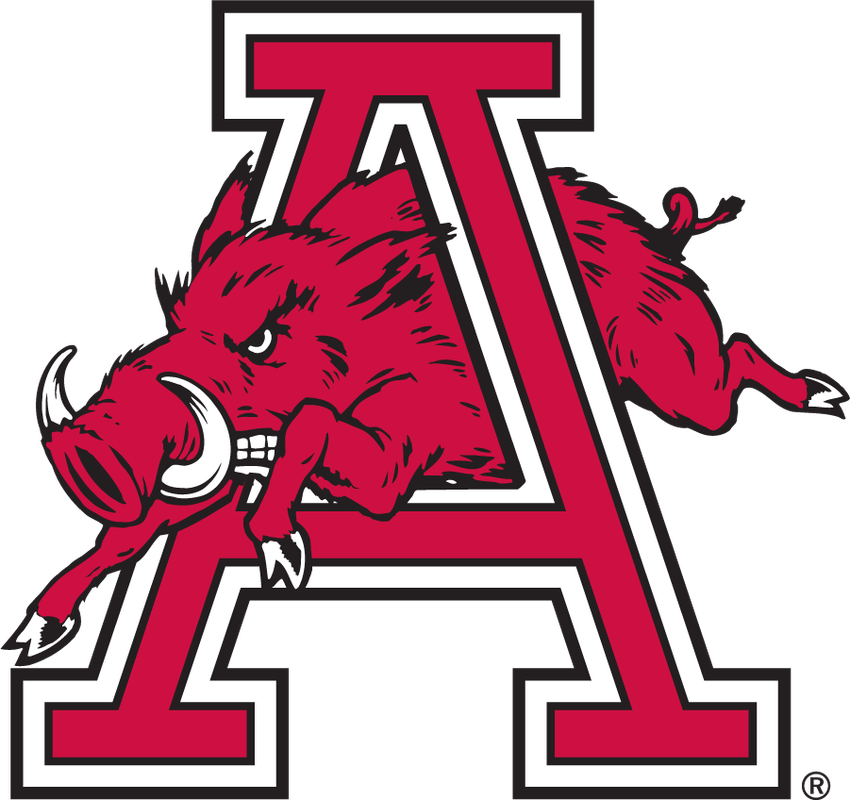- My Forums
- Tiger Rant
- LSU Recruiting
- SEC Rant
- Saints Talk
- Pelicans Talk
- More Sports Board
- Winter Olympics
- Fantasy Sports
- Golf Board
- Soccer Board
- O-T Lounge
- Tech Board
- Home/Garden Board
- Outdoor Board
- Health/Fitness Board
- Movie/TV Board
- Book Board
- Music Board
- Political Talk
- Money Talk
- Fark Board
- Gaming Board
- Travel Board
- Food/Drink Board
- Ticket Exchange
- TD Help Board
Customize My Forums- View All Forums
- Show Left Links
- Topic Sort Options
- Trending Topics
- Recent Topics
- Active Topics
Started By
Message

Robert E. Lee surrendered to Ulysses S. Grant on this day 160 years ago...
Posted on 4/9/25 at 7:23 pm
Posted on 4/9/25 at 7:23 pm
Palm Sunday, April 9, 1865.
With the walls closing in on the once proud Army of Northern Virginia, Confederate General Robert E. Lee rolled the dice one last time in an attempt to breakthrough the Union encirclement of his army on the forlorn hope that they could reach Lynchburg for resupply and link up with Joe Johnston's army as it moved north from North Carolina and toward Virginia.
The Rebel Yell was raised one final time as troops under the command of Major General John B. Gordon launched a dawn assault against Union cavalry blocking the road just outside the small hamlet of Appomattox Court House. Gordon's men achieved initial success, brushing past Phil Sheridan's troopers and continuing their advance up the road toward a potential breakout.
However, once Gordon’s men crested the ridge west of town, they saw a daunting sight: two full Union infantry corps - the V Corps and XXIV Corps - had marched through the night to cut off Lee’s escape. Realizing they were completely surrounded, Lee called off the attack.
After realizing escape was impossible, General Robert E. Lee requested a meeting with General Ulysses S. Grant to discuss terms of surrender. The two met that afternoon around 1:00 p.m. in the parlor of the McLean House in the village of Appomattox Court House, Virginia.
Lee arrived impeccably dressed in a full dress uniform with sash and sword, while Grant, suffering from a headache, wore a muddy field uniform. The contrast in appearances reflected their personalities and situations—Lee the symbol of a fading aristocracy, Grant the practical soldier of democracy and industry.
The meeting began with friendly small talk. Grant reminisced about the Mexican-American War, in which both had served. Eventually, Lee steered the conversation back to the purpose of the meeting.
Grant offered generous terms, as Lincoln had directed him to do. Confederate officers and men would be paroled and allowed to return home, retaining their private horses and sidearms. Grant even allowed men to keep government-owned horses and mules, knowing they’d be needed for spring planting—a gesture of reconciliation and humanity.
There was no punishment, no imprisonment, and no triumphalism. Grant ordered his men not to cheer when word of the surrender spread, saying, “The war is over; the rebels are our countrymen again.”
The surrender at Appomattox didn’t end the Civil War immediately - other Confederate armies would surrender in the following weeks - but it symbolically and effectively marked the end of the Confederacy.


With the walls closing in on the once proud Army of Northern Virginia, Confederate General Robert E. Lee rolled the dice one last time in an attempt to breakthrough the Union encirclement of his army on the forlorn hope that they could reach Lynchburg for resupply and link up with Joe Johnston's army as it moved north from North Carolina and toward Virginia.
The Rebel Yell was raised one final time as troops under the command of Major General John B. Gordon launched a dawn assault against Union cavalry blocking the road just outside the small hamlet of Appomattox Court House. Gordon's men achieved initial success, brushing past Phil Sheridan's troopers and continuing their advance up the road toward a potential breakout.
However, once Gordon’s men crested the ridge west of town, they saw a daunting sight: two full Union infantry corps - the V Corps and XXIV Corps - had marched through the night to cut off Lee’s escape. Realizing they were completely surrounded, Lee called off the attack.
After realizing escape was impossible, General Robert E. Lee requested a meeting with General Ulysses S. Grant to discuss terms of surrender. The two met that afternoon around 1:00 p.m. in the parlor of the McLean House in the village of Appomattox Court House, Virginia.
Lee arrived impeccably dressed in a full dress uniform with sash and sword, while Grant, suffering from a headache, wore a muddy field uniform. The contrast in appearances reflected their personalities and situations—Lee the symbol of a fading aristocracy, Grant the practical soldier of democracy and industry.
The meeting began with friendly small talk. Grant reminisced about the Mexican-American War, in which both had served. Eventually, Lee steered the conversation back to the purpose of the meeting.
Grant offered generous terms, as Lincoln had directed him to do. Confederate officers and men would be paroled and allowed to return home, retaining their private horses and sidearms. Grant even allowed men to keep government-owned horses and mules, knowing they’d be needed for spring planting—a gesture of reconciliation and humanity.
There was no punishment, no imprisonment, and no triumphalism. Grant ordered his men not to cheer when word of the surrender spread, saying, “The war is over; the rebels are our countrymen again.”
The surrender at Appomattox didn’t end the Civil War immediately - other Confederate armies would surrender in the following weeks - but it symbolically and effectively marked the end of the Confederacy.


Posted on 4/9/25 at 7:26 pm to RollTide1987
My great-great-grandfather was captured by Union Forces three days earlier at High Bridge. He was in a cage at Appomattox when the papers were signed. Then they let him go.
Posted on 4/9/25 at 7:38 pm to RollTide1987
quote:
while Grant, suffering from a headache
fricking drunk
Posted on 4/9/25 at 7:43 pm to RollTide1987
But the war was not technically over on that date
Posted on 4/9/25 at 7:45 pm to RollTide1987
The State of Virginia sacrificed its own beauty and serenity to fight for its own honor and for the cause of the rest of the South. Many great men from that state.
Posted on 4/9/25 at 7:47 pm to RollTide1987
Lincolns assassination was a tragedy for the South. His reconstruction plan was much more lenient than the one ultimately imposed.
Posted on 4/9/25 at 7:52 pm to Jim Rockford
quote:
Lincolns assassination was a tragedy for the South
worth it
Posted on 4/9/25 at 7:58 pm to RollTide1987
quote:
Grant, suffering from a HANGOVER, wore a muddy field uniform.
FIFY
Posted on 4/9/25 at 8:00 pm to Jim Rockford
quote:
Lincolns assassination was a tragedy for the South. His reconstruction plan was much more lenient than the one ultimately imposed.
The South had endure the tragedy of reconstruction after the tragedy of Lincoln's invasion at the behest of his corporate masters.
Posted on 4/9/25 at 8:44 pm to RollTide1987
Well done, Sir.
Humbling pictures.
Humbling pictures.
Posted on 4/9/25 at 9:55 pm to UnclePat76
This would be the start of an era of imperial central government. Still going strong today.
Posted on 4/9/25 at 11:07 pm to TriStateAreaFootball
quote:
The State of Virginia sacrificed its own beauty and serenity to fight for Yankees to move there & leech off taxpayers
Posted on 4/10/25 at 1:39 am to RollTide1987
We didn’t surrender we just hit pause
Posted on 4/10/25 at 1:55 am to TutHillTiger
Just paid $9000 in taxes. I’ll kill any politician within 500 miles
Posted on 4/10/25 at 3:18 am to RollTide1987
Instructions had been given; and when the head of each division column comes opposite our group, our bugle sounds the signal and instantly our whole line from right to left, regiment by regiment in succession, gives the soldier's salutation, from the "order arms" to the old "carry"—the marching salute. Gordon at the head of the column, riding with heavy spirit and downcast face, catches the sound of shifting arms, looks up, and, taking the meaning, wheels superbly, making with himself and his horse one uplifted figure, with profound salutation as he drops the point of his sword to the boot toe; then facing to his own command, gives word for his successive brigades to pass us with the same position of the manual,—honor answering honor. On our part not a sound of trumpet more, nor roll of drum; not a cheer, nor word nor whisper of vain-glorying, nor motion of man standing again at the order, but an awed stillness rather, and breath-holding, as if it were the passing of the dead
Posted on 4/10/25 at 4:12 am to hansenthered1
quote:
This would be the start of an era of imperial central government.
Not really.
There's a reason very few people can name the presidents that held office between Grant and Teddy Roosevelt. It's because they were all (mostly) inconsequential figures who enforced laws passed by Congress and did little else. It wasn't until Teddy Roosevelt and the Progressive Era in the early-twentieth century that you started to see mass centralization.
Posted on 4/10/25 at 6:05 am to Turnblad85
quote:
fricking drunk
Incorrect.
Grant was not at all an alcoholic.
He was a notorious lightweight. And if he had more than two or three drinks, he became entirely sentimental and would cry a lot.
Still defeated Lee though.
Popular
Back to top

 15
15











